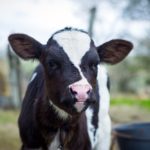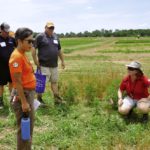Tag Archives University of Guelph — page 20

Farming blockchain
The ability to secure data and transactions through a chain of users could improve agriculture supply chain efficiency

Gene editing to eliminate boar taint being explored
A research alliance is attempting to develop male pigs that are naturally castrated

Ultrasound can detect lung problems in dairy calves earlier
Dairy calves that experience respiratory ailments produce less milk later on

Waterjet use on planters eliminates coulter-soil contact
Aquatill concept remains in testing phase, but may offer options for no-till farmers

Film delves into urban-rural perspectives on food production
University student Dylan Sher spent time researching the origins of an entree served up in a popular Toronto restaurant

Editorial: It all starts with the feet
Hoof health: For the sake of the animals and long-term health of our farms, we need to do better

Managing corn mycotoxins needs scouting, hybrid choice
Farmer can reduce risk of mycotoxins, including through insect and spore management

Farmers look to trucking industry to help soil compaction issues
Weight distribution across increasingly heavy equipment is critical

Cover crops can be tricky to kill
Cover crops can be important tools to improve soils, but there’s no single control solution

Looking for answers on sulphur
OMAFRA is looking for co-operators to further knowledge on sulphur needs in corn and soybeans

